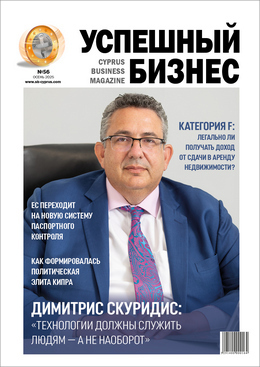This article will cover the development related to blockchain and cryptocurrency in Cyprus. It is written based on the keynote speech delivered at the Best Invest Congress by financial expert, former chairwoman of Cyprus Securities and Exchange Commission Demetra Kalogerou.
Key factors of the economic growth
Innovation and digital technology are key factors in economic growth, that is why we must actively support new products and services, which are based on fintech – especially those that can contribute to financing the development of the real economy and have been proven to contribute to the protection of investors through a healthy culture and good governance.
Blockchain technology as the main driver
One of the biggest areas of innovation Europe is witnessing is the growth of blockchain technology. It is a decentralised technology serving as a bookkeeping platform ledger in which transactions are processed, verified, and recorded. Blockchain can be used for a variety of applications, such as tracing shareholding certifications, recording transfers in ownership or voting rights or physical assets. Also, the application of blockchain technology can be used for cryptocurrencies, ICO’s and digital assets.
The regulation is still evolving
Obviously, these global trends bring many opportunities but, at the same time, they come with risks, especially in relation to crypto assets mostly relating to AML risks cybersecurity risks, inconsistent liquidity, best execution risk, insider dealing, and market abuse along with the lack of pre and post-trade transparency rules. When it comes to digital assets and cryptoassets the regulation is still evolving. There is a lot of work being done both at the national and European levels.
CySEC’s policy statement
A year ago, CySEC issued a policy statement explaining what the regulator expects from crypto exchange providers in order to be registered in its public registry. The policy statement is based on the directive for the registration of crypto asset service providers CASPs which was enforced under the 5th directive of AML/CFT that was transposed into our national legislation in 2021.
It’s good to stress that the new directive covers the registration and the supervision of the CASPs only in terms of the AML rules in order to mitigate the risks that emanate from trading of cryptoassets in money laundering and financing terrorism and also ensure cybersecurity as these providers need to have all the necessary systems and controls and ISOs in order to avoid hacking and cyber attacks. In the pipeline, there are now around 20 applications for examination while 3 were already registered in the public registry of CySEC.
What is not covered by the registration?
It’s very important to note that the registration of a CASP does not automatically mean passporting the services into other jurisdictions. If the crypto exchanges want to provide their services to other countries in the EU then they have to register as well to the registry in each country according to their national rules.
Moreover, the CASP directive does not cover cryptos that qualify as financial instruments (financial instruments tokens) as they are covered by the existing European regulations (MIFID 2, Prospectus, etc) and does not cover also electronic money tokens as they are covered in the PSP2 directive.
Travel rule for crypto assets
Another important element is that the directive introduces the travel rule for crypto assets which requires that the information on the source of the asset and its beneficiary travels with the transaction and is stored on both sides of the transfer. In this way, transfers of cryptos will be traced and identified to prevent money laundering, terrorist financing, and other crimes. Any transaction with a value equal to or over one thousand euros must be deemed as material for the purposes of the travel value. The CASPs will be obliged to provide this information to competent authorities if an investigation is conducted into AML issues.
MiCA will regulate the market
For the first time, the EU brings crypto-assets, crypto-assets issuers, and crypto-asset service providers under a unified regulatory framework.
The Council Presidency and the European Parliament reached a provisional agreement on the markets in crypto-assets (MiCA) proposal which covers issuers of unbacked crypto-assets, and so-called “stablecoins”, as well as the trading venues and the wallets where crypto-assets are held. This regulatory framework will protect investors and preserve financial stability while allowing innovation and fostering the attractiveness of the crypto-asset sector. This will bring more clarity in the European Union, as some member states already have national legislation for crypto-assets, but, so far, there has been no specific uniform regulatory framework at the EU level.
MiCA gives the crypto passporting in Europe
The new regulation on cryptoassets (MICA) for licensing the crypto asset providers and wallet providers will be regulating all the areas of crypto exchanges from their operation, custody, conduct of business, best execution, market abuse, etc in order to safeguard further the investors' protection and clearly to have a sound legal framework for cryptos that are not considered financial instruments in Europe. For example, with the new rules, crypto asset service providers will have to comply with strong requirements to protect consumers’ wallets and become liable in case they lose investors' crypto assets. MiCA will also give the passporting of the cryptoservices in Europe.
Cyprus drafted a national bill
Until MICA becomes effective which will take around 18 months to be transposed into the national legislation a national bill has been drafted by the Cyprus Ministry of Finance (an umbrella law) to regulate the development of the DLT blockchain technology and smart contracts in the public sector and provide legal certainty for this new market. This law also gives power to the regulator CySEC to issue more directives for CASPs if it deems appropriate to regulate other specific areas like custody of cryptos (wallets). This law is still pending in the parliament for approval.
DLT pilot regime
Finally, another regulation from the European Commission called DLT pilot regime that was published this spring this year and will start applying in 2023 along with targeted changes in MIFID 2/MIFIR will help evolve the cryptos that are considered financial instruments in a DLT environment and now are not covered by the existing regulatory framework. The DLT pilot regime will cover market infrastructures like DLT MTFs that trade and settle tokenised securities based on distributed ledger technology. The pilot regime adopts a sandbox approach to create certain exemptions from specific requirements embedded in the EU legislation such as MIFID/MIFIR or CSDR. The specific permission and exemptions should be granted temporarily, for a period of up to six years from the date of the specific permission and should be valid only for the duration of the operation of the DLT pilot regime. The aforementioned six-year period provides DLT market infrastructures sufficient time to adapt their business models to any modifications of this regime and operate under the pilot in a commercially viable manner.







